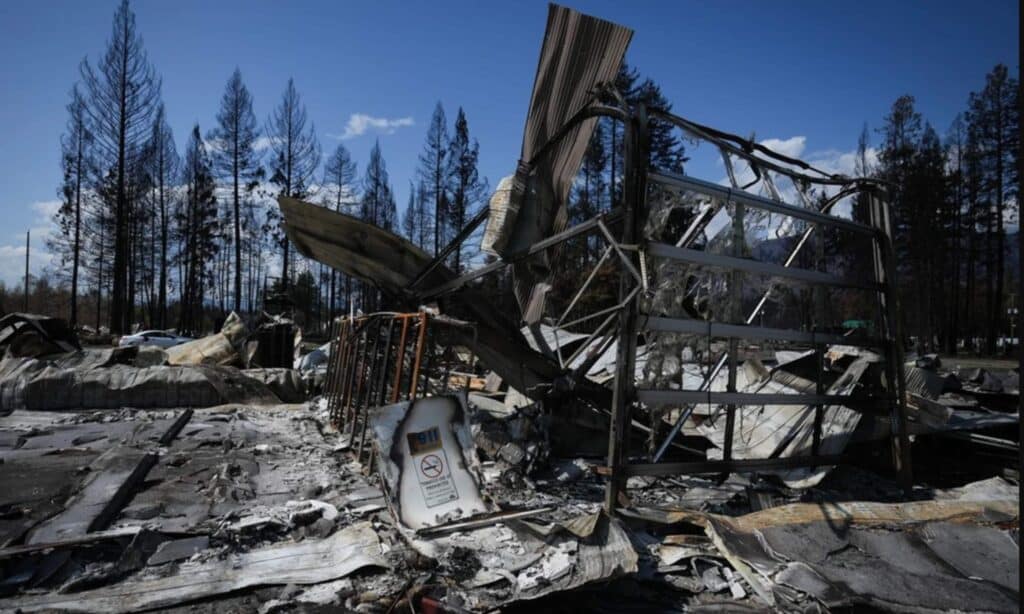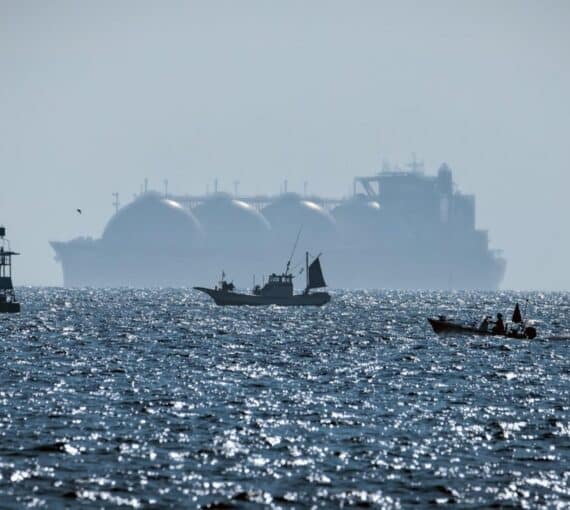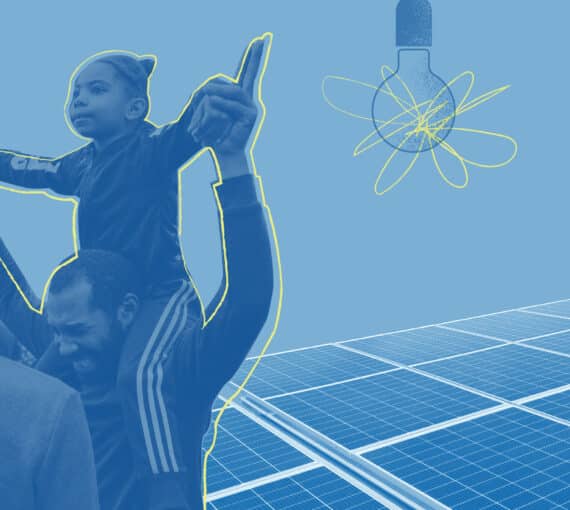
How well the next B.C. government will address challenges such as climate, old-growth logging, managing protected areas and growing a clean economy very much affect affordability. Healthy economies rely on flourishing ecosystems and a stable climate. (Photo: Darryl Dyck via The Canadian Press )
With B.C.’s election around the corner, many people are evaluating where parties stand on the economy and cost of living, health care, housing, education and a long list of other pressing issues. Despite this being the critical decade for climate action — according to scientific bodies like the Intergovernmental Panel on Climate Change — stewarding a healthy environment is often relegated to secondary importance as people struggle to make ends meet.
But how well the next provincial government will address challenges such as climate, old-growth logging, managing protected areas and growing a clean economy very much affect affordability.
Climate-fuelled weather events drive up the cost of living for everyone. Worsening climate chaos is adding to insurers’ costs, and those increases are being passed on to us. Households in B.C. are paying nearly eight per cent higher rates for home insurance this year because of the escalating costs associated with climate-related floods, wildfires and severe weather events. Runaway climate change is the most unaffordable outcome.
Although 2023 was the worst year for wildfires yet in Canada, hotter drier weather for longer periods makes rapidly spreading extreme fires much more likely and costlier — as we saw with this year’s Jasper wildfire. Last year’s two wildfires in the southern Interior were B.C.’s costliest insured event ever at $720 million in losses. The province spent more than $1 billion to suppress the raging wildfires — five times higher than budgeted.
Contrary to arguments that climate policy makes life less affordable, it’s fossil fuels that keep consumers stuck on energy price roller coasters.
Fossil fuels play a major role in inflation. Prices are volatile and affect not only the cost of energy services but also many non-energy items. From February 2021 to June 2022, energy prices accounted for a third of Canada’s overall inflation. Contrary to arguments that climate policy makes life less affordable, it’s fossil fuels that keep consumers stuck on energy price roller coasters. Ironically, exporting more fossil methane from liquefied natural gas terminals being built on B.C.’s coast will likely make heating and powering homes more expensive, if B.C.’s experience follows that of the U.S. and Australia. Health professionals warn that LNG is making health care more expensive as well.
In addition to severely affecting local air quality, last year’s fires that rampaged through Canada’s boreal forest also made climate change that much worse. They produced more carbon emissions, at 647 megatonnes, than burning fossil fuels in all but three countries, a study in the scientific journal Nature found. Only India, China and the United States released more carbon in 2023. Peak fire weather that year was at least twice as likely due to human-caused global heating, according to attribution science.
Climate change is already harming our health, with doctors seeing increases in cases of heat stroke and cardiorespiratory issues, among other concerns.
Given this alarming context and the major consequences that environmental policies will have, you’d think we’d hear more talk about solutions as we approach October’s election.
Many voters are worried about affordability and want a future with cleaner air, better technologies and less extreme weather. Candidates and the parties they represent need to earn their votes.
Many voters are worried about affordability and want a future with cleaner air, better technologies and less extreme weather. Candidates and the parties they represent need to earn their votes. To do so, they must understand the consequences of not acting on climate science and support evidence-based approaches. They need to advance climate justice and Indigenous rights and prioritize nature protection and restoration because healthy economies rely on flourishing ecosystems.
Candidates and parties must also recognize that we have solutions that will bring jobs and economic opportunities and don’t require adding more fossil fuels, like fracked natural gas, to the system or supporting so-called solutions that are too uncertain, expensive or take too long to work. They should be willing to challenge the fossil fuel industry status quo by supporting a cap on oil and gas emissions and making zero emissions heating the only option for new buildings. And they should avoid policy lurches that create uncertainty, such as eliminating proven solutions such as carbon pricing.
Political parties should create conditions and price signals that will spur investment and innovation and accelerate solutions such as heat pumps, solar and other renewable energy and energy storage technologies. And they should ensure the provincial budget invests in nature, climate solutions and adaptation to extreme weather.
This is a crucial election for climate and the environment — British Columbians deserve real leadership.
This is no time for empty words and environmental platforms that favour voluntary measures over regulation and claim that the market and unproven technologies will save the day. British Columbia has a wealth of resources, but ignoring the climate science, prioritizing yesterday’s economy by further expanding B.C.’s already massive fossil fuel industry and disregarding healthy ecosystems fail to recognize the link between nature, economy, climate and communities. This is a crucial election for climate and the environment — British Columbians deserve real leadership.
This article was originally published in The Province.
Related Projects
Always grounded in sound evidence, the David Suzuki Foundation empowers people to take action in their communities on the environmental challenges we collectively face.


